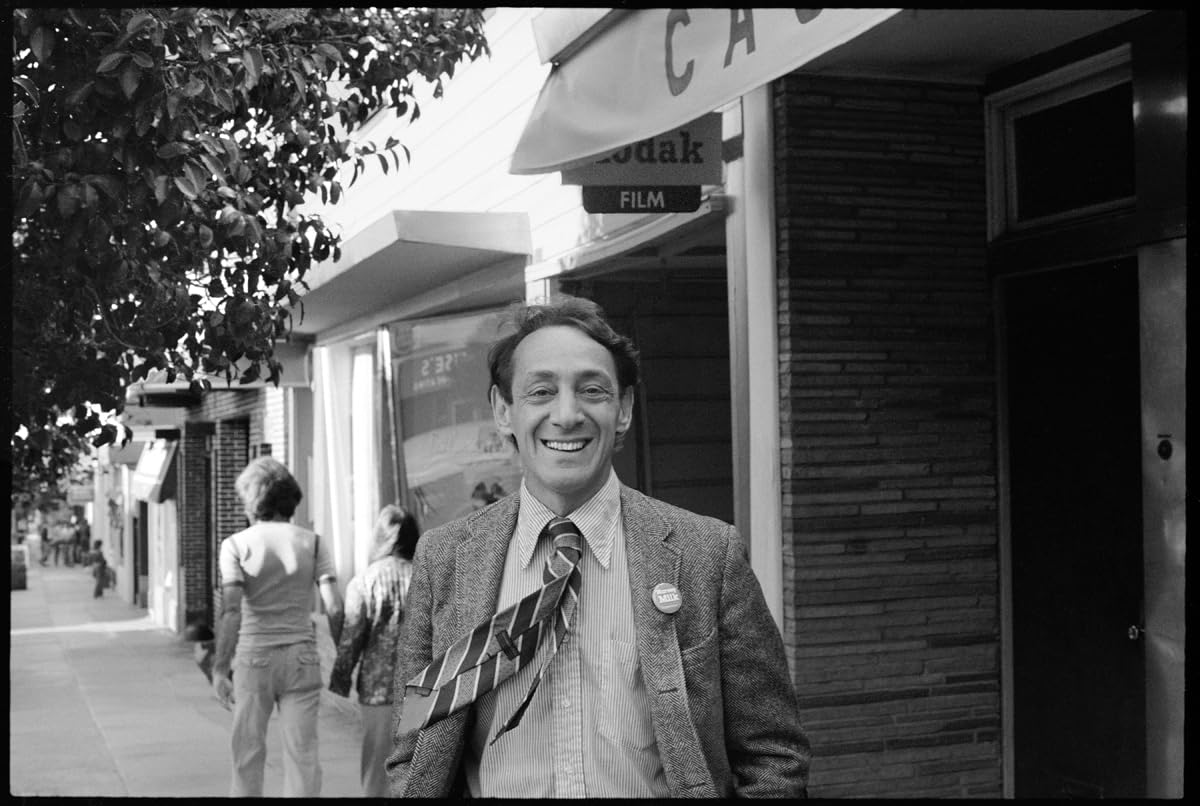Whether you’ve flown into the Harvey Milk terminal at SFO, licked the back of a memorial postage stamp with his face on it, passed through the Harvey Milk Plaza Muni station, or visited a community center or public school that bears his name, you cannot live in the San Francisco Bay Area without some awareness of Harvey Milk’s outsized impact on—not just the city—but the history of the LGBTQ+ civil rights movement in the United States. And, while Sean Penn and the cast of Gus Van Sant’s feature film Milk (2008) did a fine job recreating the remarkable life of this important figure in the fictional realm, Rob Epstein’s The Times of Harvey Milk (1984) remains the definitive historical chronicle of his life and vision for hope and equity. For everyone who cares about the history of queer activism, and about political leadership more broadly, this film is essential viewing.
The Times of Harvey Milk is an emotionally gripping documentary. Combining breathtaking archival footage and posthumous interviews with many of Milk’s closest friends and colleagues, the film is an exhilarating time-capsule—a vivid portrait of the vibrant gay ghetto of the Castro neighborhood of the ‘70s—and of the community of committed activists who surrounded and supported his leadership. While the Castro of this time is often remembered as an exclusively gay male enclave, one of the strengths of the film is the way that it underscores the important role that lesbians played in Milk’s political rise, and in the broader gay civil rights movement of this time. Just as lesbians played an important role in Milk’s career, the film was also the product of lesbian and gay male collaboration; notably, featuring the work of lesbian cinematographer Frances Reid, and co-edited by Deborah Hoffmann. (Fun fact: Reid and Hoffmann, award-winning Oakland-based filmmakers in their own rights, fell in love while working on The Times of Harvey Milk).
As one of the first feature documentaries to bring the fight for gay civil rights in America to the attention of mainstream audiences, The Times of Harvey Milk is both a historically important document and a film that speaks to the urgency of our own times. While many people mistakenly refer to the film as “the life and times of Harvey Milk,” the film’s actual, simpler title, “The Times of Harvey Milk,” declares it as more than simply a hagiography of a singular figure. It is a work that emphasizes the central role that community, collaboration, and zeitgeist played in changing how the world thought about and treated gay people.
Above all, The Times of Harvey Milk is an exemplar of the kind of powerful, human rights movement that is possible when galvanized by inspired leadership. Showing Milk’s political rise alongside the heartbreaking candlelight procession on the night of the assassinations, followed by footage of the White Night riots that erupted after the insanity of the murderer’s acquittal, this film is ever more relevant and essential viewing today.
The Times of Harvey Milk screens on Thursday, May 22, at the Roxie on 35mm.



